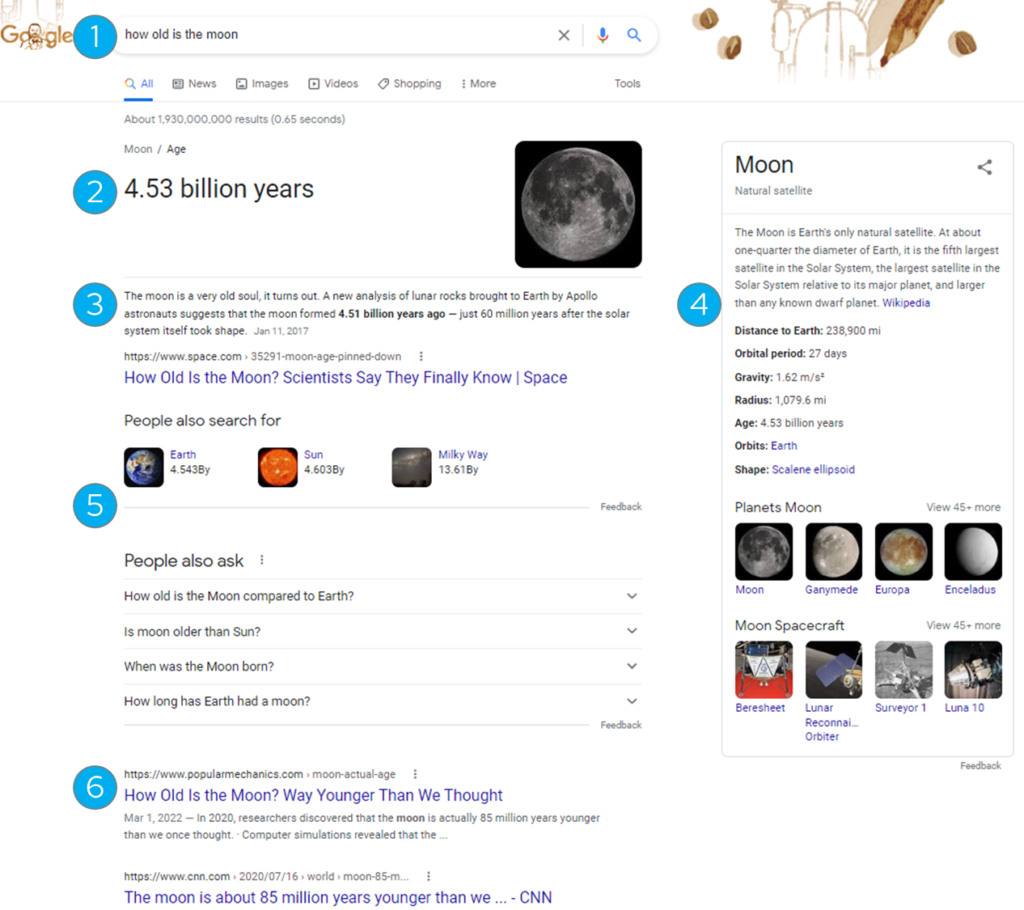

Graham Gillen
Earlier this year, we came across an article from MIT Technology Review entitled “Chatbots could one day replace search engines. Here’s why that’s a terrible idea.” It’s a wonderful article covering advanced natural language models and how they impact human interaction with search and digital assistants. We share our own thoughts on the subject here, with our first point being: Question Answering and Chatbots are NOT the same.


Chatbots are NOT search engines
This may seem obvious, but on the surface, it seems absurd to even equate the two. Both are interfaces for human-machine interaction, but they evolved with totally different paths and purposes. And it’s questionable if the two are really converging.
As we explained in our inaugural blog, search engines go back a long way to the 1960s as a tool for literature search. People were looking to extract text and facts from large repositories of information and while search was powerful, it was by no means “smart” by today’s standards. Search engines were never meant to mimic human response.
While they also have their roots in the 1960s, chatbots, on the other hand, have a history of claiming to be a form of AI. Their purpose is to represent a type of artificial intelligence that “chats” with you. As they improved with better computer power and natural language processing capabilities, chatbots became – like most technologies – overhyped. Being able to “talk” to them – like Siri, Alexa and Hey Google added to the mystique.
But today, as the MIT article says, most people understand that chatbots are mindless mimics. In fact, researchers have found that customers hate chatbots, except in certain specific situations.
- People detest addressing important matters with a chatbot. In fact, when a chatbot doesn’t resolve a situation, they feel pleased to know their conversation partner was non-human.
- We know when we are interacting with a chatbot in a service situation, and many of them even announce that fact to manage expectations.
Chatbots have mostly settled into an automated support role as an “assistant” to help us with a very specific task or “intent.” Search engines, on the other hand, are something that we use to look for and access information and knowledge. Like a screwdriver and a hammer, they are meant for different purposes – and that is the simplest answer to why chatbots will not – cannot – replace search engines.
Question answering systems are NOT chatbots
So what IS the future of search engines?
Well, if you look up the term “Question Answering” the Wikipedia definition is:
Question answering (QA) is a computer science discipline within the fields of information retrieval and natural language processing (NLP), which is concerned with building systems that automatically answer questions posed by humans in a natural language.
This definition relates to information access and retrieval, and so by definition, question answering is actually more related to search engines.
While chatbots are a form of simple conversational AI, the current state-of-the-art question answering systems set much lower expectations for the user. You want to pose a question in natural human language, and you would like a direct answer if possible.
That last bit is the problematic part in question answer systems. And it requires a pragmatic approach.
Question answering systems are the evolution of search engines
The first thing to acknowledge is that Google is still the search engine king. And it is poised to drive the evolution of search engines into question answering systems.
For the past several years, Google has already subtly trained people to type in full, natural language queries into the search bar. So much so that even Bing has had to adapt to Google’s results and architecture.
Google is the driver for the experience people expect with just about every search application.
The technology behind all this includes natural language processing models like BERT, which are continuously improved by machine learning; complementary knowledge graph technology to quickly deliver direct factual answers; and of course, increasingly fast and sophisticated search engines incorporating advanced capabilities like vector search.
The diagram below illustrates the experience search application users want today.
This starts with the ability to type in a natural language query (1), often in the form of a question. A well-developed knowledge graph is the technology that enables a rapid direct response (2) when the answer exists. To strengthen the validity of an answer, Google often also displays featured snippets (3) which also lists a trusted source that backs up or enhances the knowledge graph answer. Knowledge graphs can also help display a knowledge card (4) which contains additional information related to the subject of the query.
Sophisticated search engines are also able to anticipate and share similar queries (5) that can help users in their knowledge exploration. Lastly, Google still lists traditional search results (6) that lets users further explore related online sources relevant to the original query.


But what if the knowledge graph doesn’t contain the exact answer? In this case, the most sophisticated question answering systems will be able to interpret the question and actually match it closely to an answer.
This special “snippet” is an example of an extractive answer and involves machine learning, vector search and natural language processing techniques that are quite sophisticated but increasingly found in search applications. Notice that the query is not found as an exact match in the search results. And the application was smart enough to do things like equate “Formula 1 cars” with “F1 cars.”
This is way beyond keyword search and is broadly referred to as Extractive Answers.


Some of the researchers at Google are investigating more complex NLP models such as MUM, but the reality is we are a long way from people wanting or expecting a fully conversational AI experience in their search bar. The pragmatic future of search is not HAL 2000 (from 2001: A Space Odyssey), but well-conceived and executed question answering systems.
When things go too far
Of course, the MIT article does focus on a key concern when the subject of questions and answers can be somewhat subjective. Can users trust the source of the answers? What are the ramifications of giving an answer that could be incorrect, or even harmful?
Google may ruffle a few feathers trying to answer, “what is the best movie of all time?” But, as pointed out in the MIT article, there can be dangerous social ramifications when it answered a query “what is the ugliest language in India?” with the snippet “The answer is Kannada, a language spoken by around 40 million people in south India.”
Some of the researchers in the MIT article think that providing answers in search engine applications is going a bit too far, since the answer to most questions is “it depends.” But that cat is out of the bag. Google has already set user expectations. Rather than eliminating question answering altogether, developers need to be mindful about the questions they try to answer and fair and transparent about how answers are derived. And it’s always a good idea to still provide a list of traditional search results for users to browse through.
Wrapping Up
There are a lot of developments going on around advanced AI and natural language processing and understanding models. And while its prudent to be cautious about how any technology is deployed, our view is pragmatic.
Don’t worry too much in the near term about AI taking over the world or trying to perfect human-like conversations in your search applications. But don’t disappoint your users with the same old search bar experience. Take advantage of all the technologies and ideas we mentioned here to deliver the Google-like search experience they expect.
One thing we totally agree with from the MIT article is a quote from Benno Stein, Professor of web technology and information systems at Bauhaus University in Weimer, Germany:
"Search is so important for us, for society"
Dr. Benno Stein, Bauhaus University
We’d love to hear what you think. Please CONTACT US to share your thoughts.
Useful links: